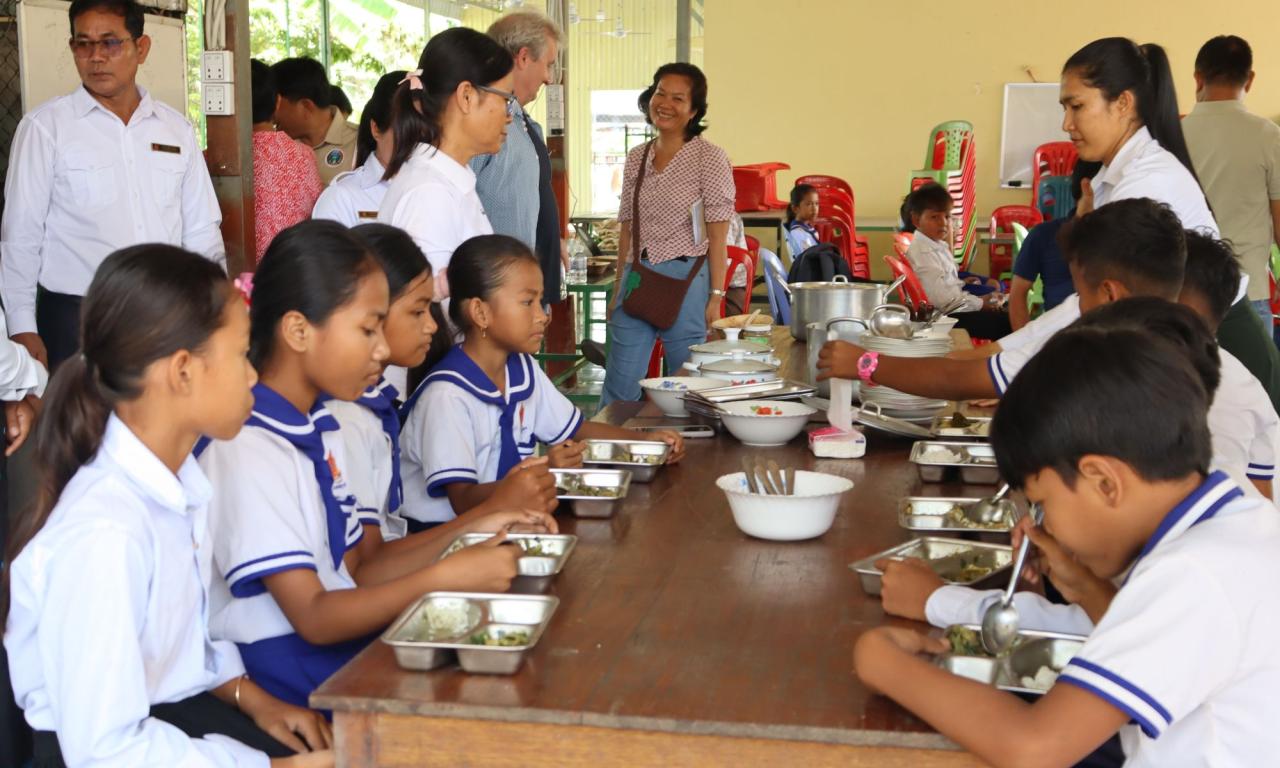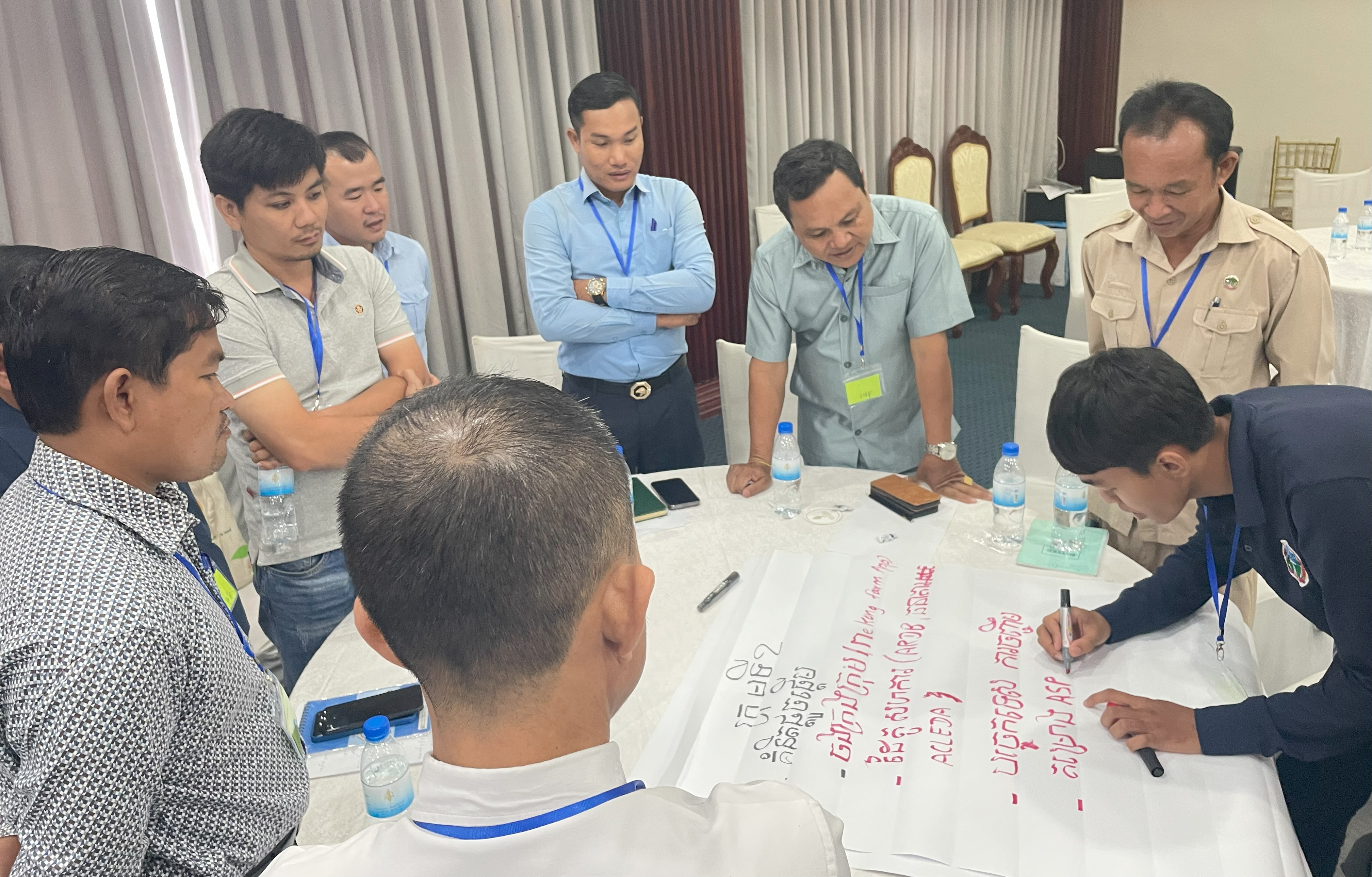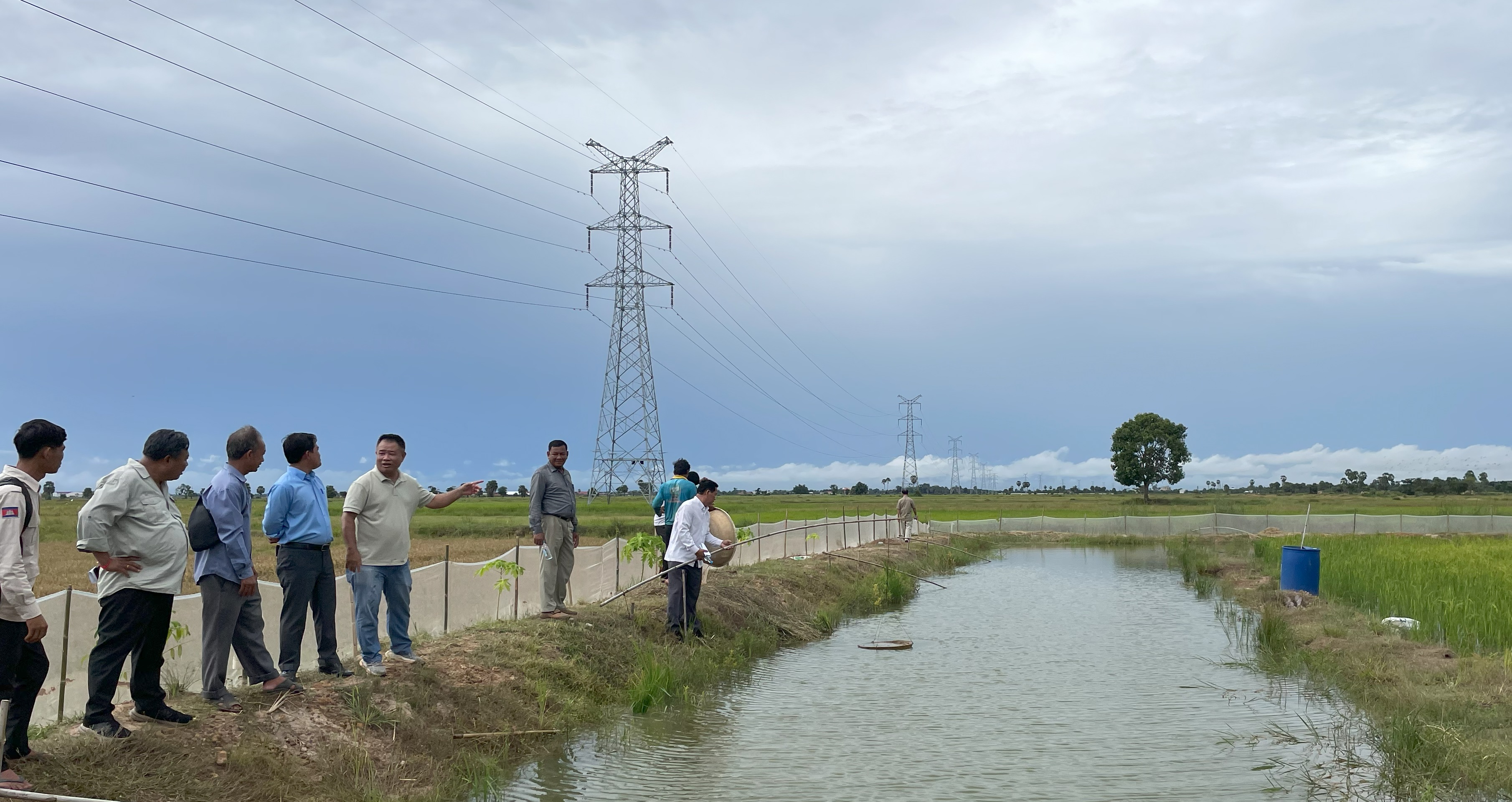
As part of the ASEAN CGIAR Innovate for Food and Nutrition Programme funded by the UK government, and led byWorldFish and the Alliance Bioversity CIAT with the support of the Council for Agricultural and Rural Development (CARD), two workshops were recently held in Cambodia. The first, Planet-Friendly School Meals as a Scaling Pathway for Regenerative Agriculture, took place in Phnom Penh with participants from CARD, the Cambodia Ministry of Agriculture, Fisheries and Forestry (MAFF), the Cambodian Ministry of Education, Youth and Sports (MoEYs), the World Food Program (WFP), NGOs and universities.
The second, “Building Self-Sustaining Accelerators for Diversified Lowland Rice Systems,” was held in Kampong Thom Province and brought together farmers, NGOs, private sector representatives and government officials.
Together, these workshops highlighted different but complementary opportunities to advance regenerative agriculture and aquaculture practices, one through the national school meal program, and the other through diversified rice–fish and rice–prawn systems.

Workshop 1: Unlocking Potential in Cambodia’s School Meal Program
The planet friendly school meals workshop highlighted the powerful link between regenerative agriculture and Cambodia’s national school meal program, a largely untapped market with immense potential. By integrating regenerative produced foods, the program could boost farmers’ incomes, enhance climate resilience, and improve the health of students and communities.
However, the discussion also revealed key challenges:
- Technical gaps in food preservation and processing, which are essential for managing seasonal fluctuations in fish and vegetable supply.
- Complex certification standards and limited awareness of food safety issues, such as microbial contamination, heavy metals and pesticide residues.
- Resource constraints, including insufficient funding and human capacity for implementation.
Despite these barriers, the workshop uncovered promising opportunities:
- Supportive national policies and ASEAN standards provide a strong framework for scaling efforts.
- Agricultural cooperatives and commune extension workers can play a pivotal role in expanding the program.
- Global best practices in planet-friendly school meal programs offer inspiration, while untapped funding sources open new avenues for support.
Field Visits: Farmers and Schools Leading Sustainable Change
Government stakeholders visited schools in Kampong Thom province, where children receive meals through the WFP. Students shared how these meals help them stay energized, focus better in class, and reduce food costs for their families. Their favorite dishes? Fried rice with vegetables (Bai cha) and soup with vegetable and fish (somlor korkor). Many expressed a wish for fruits in their meals. Several of the young girls at the school said that they use hook and line to catch Snakehead (Channa spp), climbing perch (Anabas testudineus) and catfish (Clarias macrocephalus) in the rice-field fishery areas.
To increase local vegetable and fruit supply, students and staff planted morning glory, papaya, and other crops. While the school administrator admitted the harvest isn’t enough, he emphasized the importance of teaching children about nutrient-rich, diverse diets through gardening.
Rice-Prawn Farming: A Farmer’s Success Story
At a WorldFish field site, a local farmer shared her experience adopting rice-prawn farming, a climate-smart practice that boosted her profits by 50% compared to traditional rice monoculture. Despite initial challenges, she plans to expand her production area, recognizing the long-term benefits for both her income and the environment. Although freshwater prawn (Macrobrachium Rosenbergii) is a high value ‘luxury’ product, the absence of pesticides in the production system allows small indigenous fish species (SIS) to thrive. When such systems are taken to scale the production of SIS will increase dramatically thereby providing a potential source of nutrient-dense fish for school meal programs

Workshop: Scaling Sustainable Diversified Rice Systems
The second workshop in Kampong Thom, “Building Self-Sustaining Accelerators for Diversified Lowland Rice Systems,” brought together farmers, NGOs, private sector representatives, and government officials to identify barriers to scaling rice-prawn or rice-fish systems. Participants identified limited financing, restricted market access and gaps in technical knowledge as critical obstacles.
To overcome these challenges, the group proposed creating a stakeholder platform, an “accelerator hub” to connect farmers, buyers, financial institutions, and support agencies. The goal? To promote collaboration, share knowledge, and avoid duplicating efforts.
Paving the Way for a Sustainable Future
Together, the two workshops and field visits demonstrated the power of collaboration in advancing regenerative agriculture and aquaculture. By bringing together farmers, government agencies, NGOs, and the private sector, Cambodia is building a foundation for a healthier, climate-resilient, and sustainable food system.
